Top 100 Children’s Novels #75: The Saturdays by Elizabeth Enright
 #75 The Saturdays by Elizabeth Enright (1941)
#75 The Saturdays by Elizabeth Enright (1941)
27 points
This book and its sequels are some of my favorite books of all time. The characters are well defined and the stories feel fresh and immediate. – Laurie Zaepfel
#51 on the last poll and #75 today. By now you’ve probably noticed that most of the books seem to have fallen on this poll. What’s supplanted them in the hearts and minds of readers? Oh. You will see.
The plot according to American Writers for Children, 1900-1960 reads, “In The Saturdays, Randy, Rush, their older sister Mona, and their younger brother Oliver decide to pool their allowances so that each Saturday during the winter one of them can afford to do something special in New York City; the book follows their escapades, some of which are more successful than others: Mona, to the distress of her parents, spends her share of the money at the beauty parlor; Oliver gets lost at the circus; Rush goes to an opera; and Randy goes to an art museum and meets Mrs. Oliphant, who becomes a fairy godmother of sorts to the children.”
ADVERTISEMENT
ADVERTISEMENT
According to American Short-Story Writers Since World War II: Fifth Series, “Thimble Summer remained Enright’s most popular children’s book until 1941, when the first of the Melendy family stories, The Saturdays, was published.” I would dare say that it remains her best known work to this day (Newbery winner aside). For the interested, there are three other books in the Melendy series. The Four-Story Mistake (1942), Then There Were Five (1944), and Spiderweb For Two (1951).
And the dialogue really is good in this book. I mean really really good. I don’t usually quote large swaths from the books on these lists, but this just had to be noted:
“And for heaven’s sake don’t play Bach,” ordered Randy. “It’s so jumpy for today.”
Rush slung his leg over the piano stool and sat down. With both hands he began to play slow deep chords that fitted together into a wonderful dark mysterious music.
“Yes, that’s better for today,” approved Randy. “What is it, anyway?”
“Bach,” said Rush without turning his head. “Just shows how much you know about music.”
“Not an awful lot,” admitted Randy humbly.
“Not any,” said Rush.
He played another bar.
“Not many people your age do, though,” he added kindly.
Of her characters, Ms. Enright herself would say, “”Perhaps they are always a little more reasonable and ingenious than live children are apt to be. . . Their conversations are to the point; in the tales about them, as in tales about adults, they cannot be allowed all the ragtag slack of daily life, all the humdrum comings and goings and yawnings and coughings and desultory chatter.”
J.D. Stahl in the April 1998 edition of Hollins Critic points out, though, that “Unlike the majority of writers for children during the era of World War II, she did not exclude awareness of the war from her children’s fiction. In The Saturdays, Rush and Randy, two of the memorable Melendy children, stare at the Rorschach-like outlines of a leak on the ceiling of their New York City house. Rush sees a shape like a big fat fish, or a heart, ‘and a thing like a baseball mitt, and a kind of lop-sided Greyhound bus.’ But Randy sees something else: ‘You’ve missed Adolf Hitler,’ she says. ‘See up there? That long fady line is his nose, and those two little chips are his eyes, and that dark place where you threw the plasticine is his mustache.’ The war hangs like a dark shadow on the horizon.”
- A touching inscription in one of Ms. Enright’s books by her son was discovered at Collecting Children’s Books.
The New Yorker said of the book that it made, “pleasant reading for children who like stories of family life and don’t wince at the thought of going to an art exhibit or the opera.”
I’m happy to see far more book jackets for this title out these days. Splendid!
Filed under: Best Books, Top 100 Children's Novels (2012)
About Betsy Bird
Betsy Bird is currently the Collection Development Manager of the Evanston Public Library system and a former Materials Specialist for New York Public Library. She has served on Newbery, written for Horn Book, and has done other lovely little things that she'd love to tell you about but that she's sure you'd find more interesting to hear of in person. Her opinions are her own and do not reflect those of EPL, SLJ, or any of the other acronyms you might be able to name. Follow her on Twitter: @fuseeight.
ADVERTISEMENT
ADVERTISEMENT
SLJ Blog Network
The Moral Dilemma of THE MONSTER AT THE END OF THIS BOOK
K is in Trouble | Review
Parsing Religion in Public Schools
ADVERTISEMENT









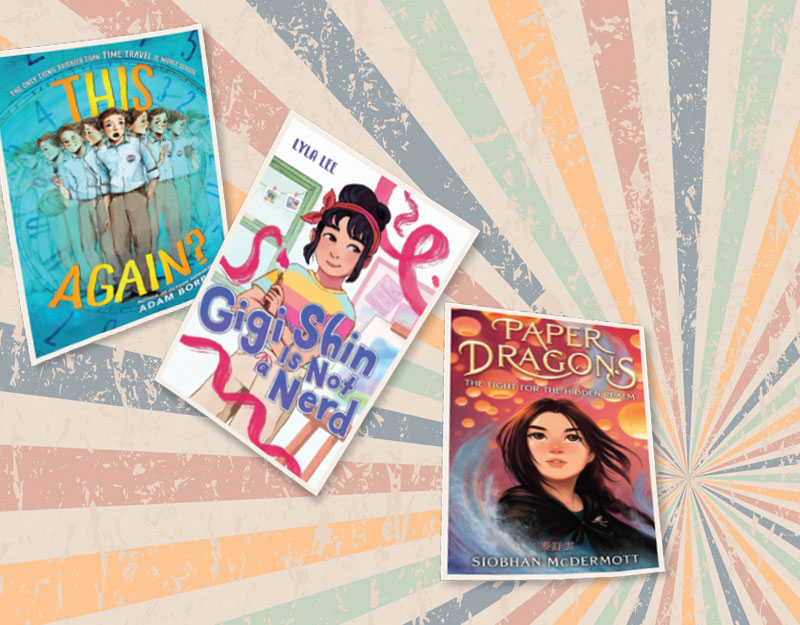
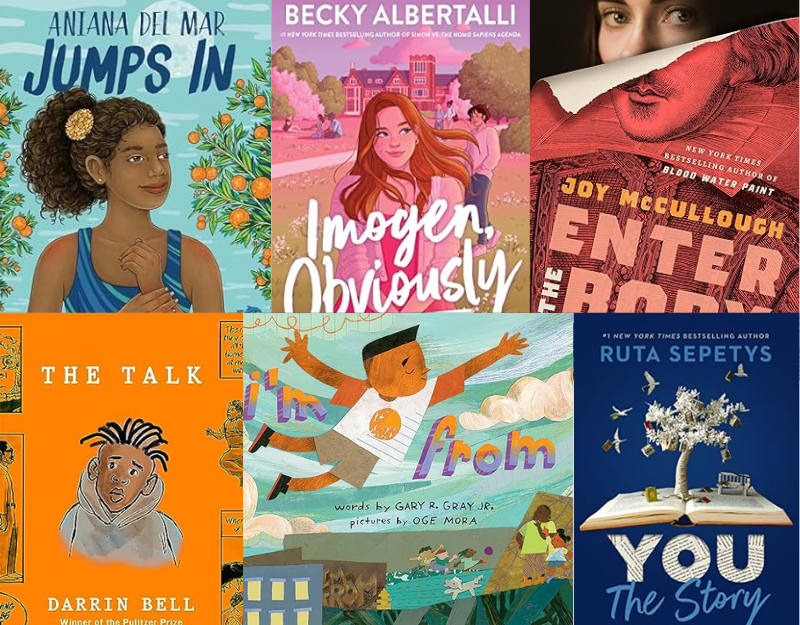
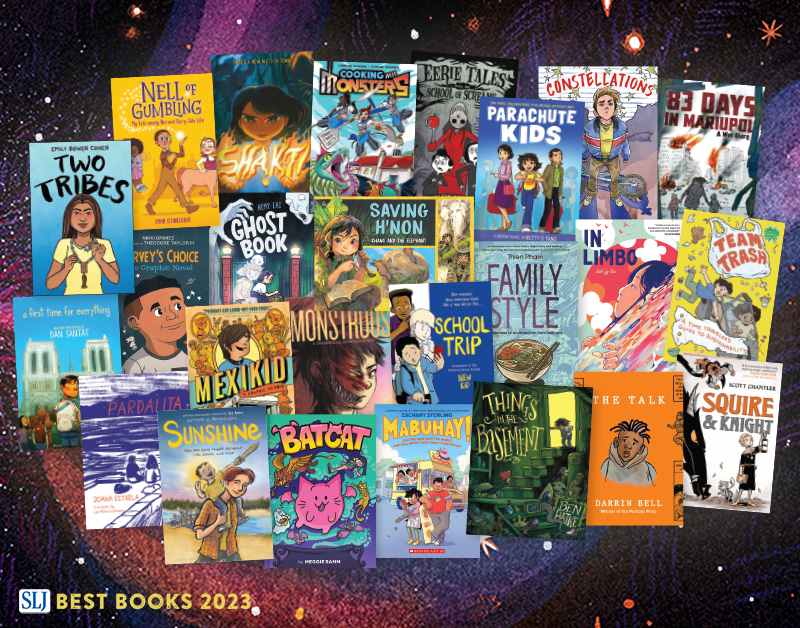
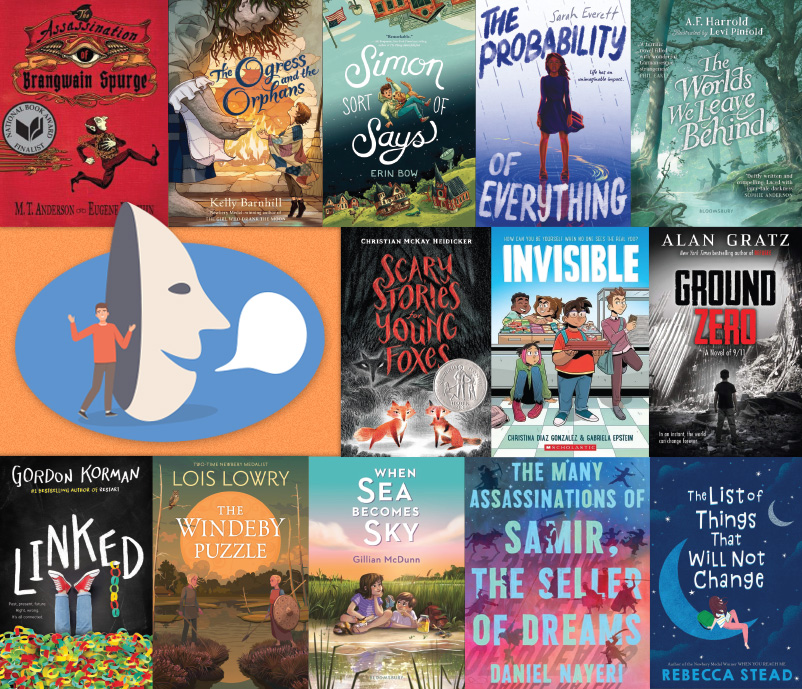
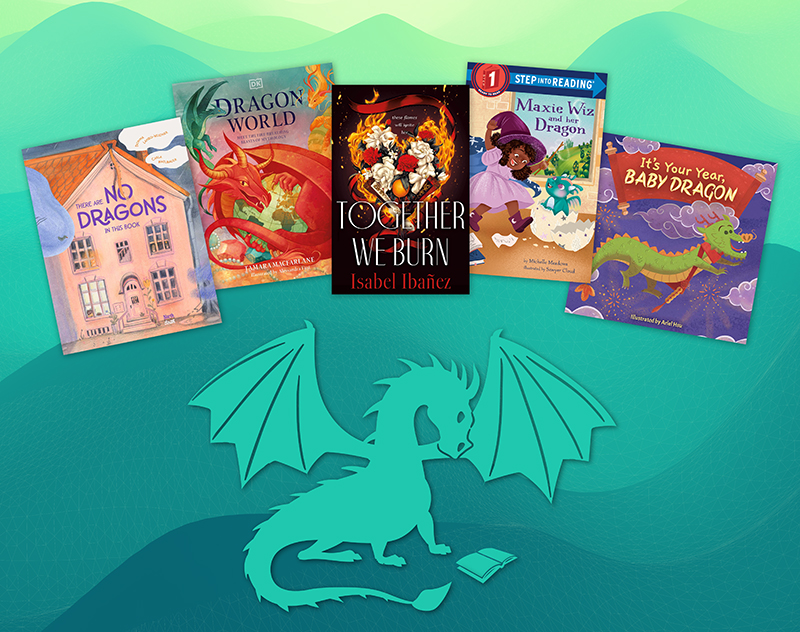
This was the one book on the last list that I thought I’d NEVER EVEN HEARD OF.* When I said so, one of my best friends went off on me that she’d been trying to get me to read this for YEARS (she’d just said “the Melendy books” though, which is why I didn’t recognize it) and I needed to STOP WHATEVER I WAS DOING AND READ IT NOW. So I did. And of course I loved it. The great things these countdowns inspire us to do!
*There have already been several of those this time *blush*
I always wondered if this title seems a bit more dated to current readers than others in the Melendy set? The Four Story Mistake and Spiderweb for Two were always my favorite of this series Our library did not have the latter, so I had to spend a hard earned quarter for an ILL to get to read it. Enright was such a favorite that she was part of the inspiration for my daughter’s name.
I recently rediscovered this series and fell hard – now I wish I’d voted for this one!
I read all the Melendy books to my son when he was small. We particularly liked The Melendy Maze, but The Four Story MIstake was a lot of fun as well.
Oops, the Melendy Maze might actually be Spiderweb for Two. Its the book in which the older Melendys send puzzles and clues to the younger two.
I think my favorite part of this book was Rush going to the opera. I loved Wagner, too, and reading about a boy who didn’t think it at all “sissy” to go to the opera just made me so happy.